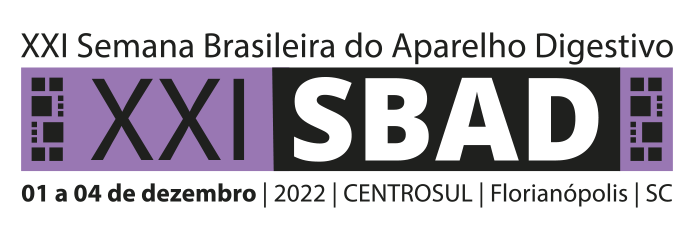Dados do Trabalho
Título
Relapse of lymphoma diagnosed by EUS-FNA of the adrenal gland
Resumo
iNTRODUCTION
Diffuse large B-cell is the most common Non-Hodgkin Lymphoma (NHL). The diagnosis relies on a detailed examination of tumor tissue, best achieved with an excisional biopsy specimen. Although specimens from fine-needle aspiration (FNA) biopsy are frequently used, they can be inadequate for pathological assessment. However, sometimes the diagnosis can be challenging and FNA can be an alternative when excisional biopsy is not feasible. Herein, we present a case with suspicion of relapse lymphoma without superficial lesions and inconclusive previous biopsies.
CASE
A 76-year-old male presented in 2012 with an abdominal mass that revealed to be bulky diffuse large B-cell lymphoma (DLBCL) treated with R-CHOP (rituximab, cyclophosphamide, doxorubicin, vincristine, and prednisone) with disease remission. The patient maintained asymptomatic without evidence of disease for 10 years, until recently, when he started complaining of abdominal pain, vomiting, and weight loss of 8kg in 2 months. A PET-CT showed abnormal metabolic activity with nodular thickening in the fourth portion of the duodenum/jejunum at the paraortic area and left flank (SUVmax 25.0), and diffusely thickened adrenal glands (SUVmax 20,2), suggesting a relapsed lymphoma (A). Since the patient did not have any peripheral mass, excisional biopsy was not feasible. Two CT-guided biopsies of this mesogastric thickening were performed and resulted inconclusive. In this scenario the patient was referred to EUS-FNA. A diffuse hypoechoic left adrenal thickening, measuring 1.5x3.5 cm was seen and punctured with a 22G standard needle (B). Flow cytometry (C), cytopathology and immunohistochemistry (D) confirmed a late relapse of DLBCL. Due to the patient was not candidate for steam cell transplantation, the patient was referred to immunochemotherapy.
DISCUSSION
Secondary involvement of adrenal gland by NHL occurs in almost 25% of cases. Disease relapses occurs in approximately 20-25% after R-CHOP treatment and tissue diagnosis is required to confirm the relapse and exclude other conditions. Previous studies have described the value of EUS-FNA combined with flow citometry for diagnosis of lymphoma. In this particular case, we described the safe and successful acquisition of material with EUS-FNA of adrenal gland for diagnosing relapsed lymphoma when no other site was available, and avoiding an invasive surgical procedure.
Área
Endoscopia - Ecoendoscopia
Autores
Deborah Marques Centeno, Luciano Lenz, Rafael Utimura Sueta , Pastor Joaquín Ortiz Mendieta, Julia Mayumi Gregorio, Adriana Vaz Safatle Ribeiro , Bruno Costa Martins, Caterina Maria Pia Simoni Pennacchi , Carla Cristina Gusmon, Fábio Shiguehissa Kawaguti , Gustavo Andrade de Paulo, Marcelo Simas de Lima , Ricardo Sato Uemura, Renata Nobre Moura , Sebastian Naschold Geiger, Fauze Maluf-Filho
